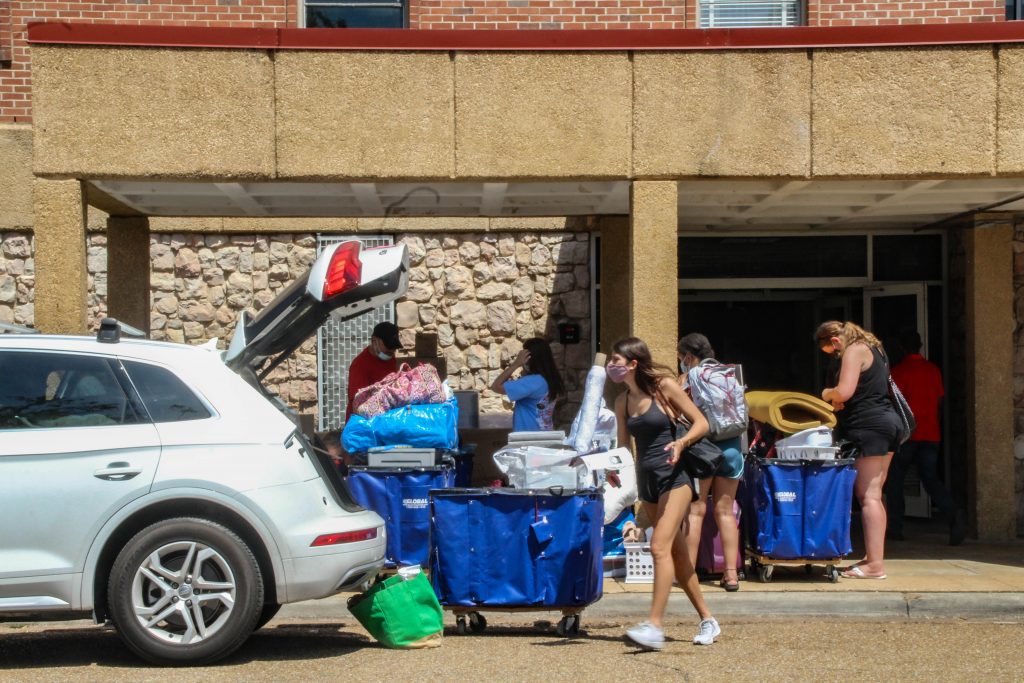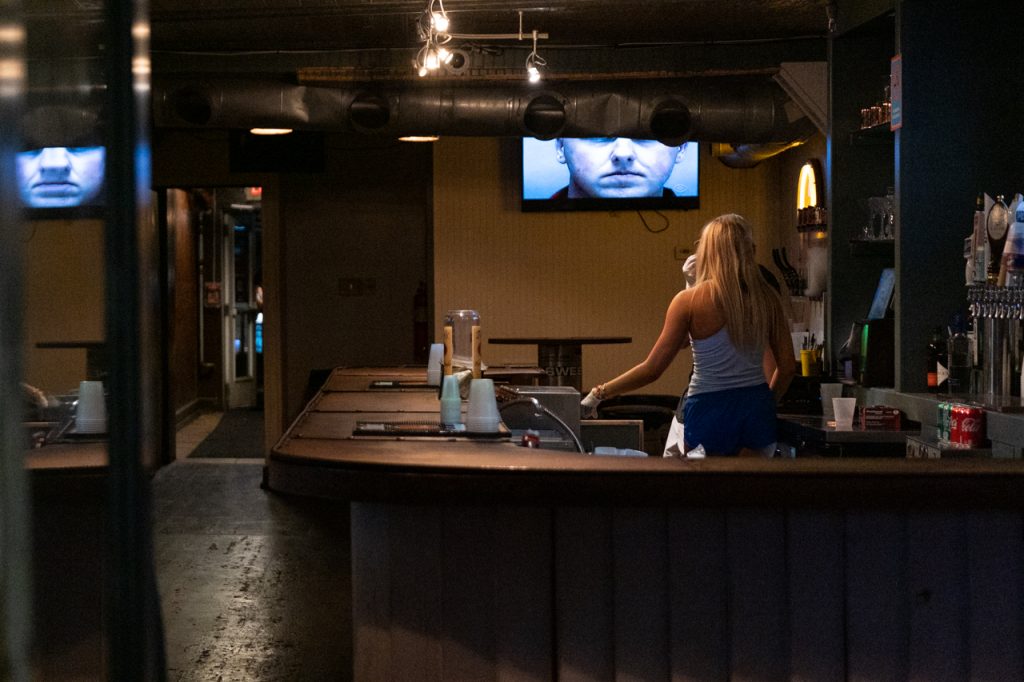
Students moved back onto campus last week for the first time since classes switched to an online format in March, but currently, the university does not have a publicly available plan to test its students for COVID.
Several community assistants (CA) told The Daily Mississippian that when asked if there were plans to test students living in residence halls, a housing official said student housing “does not have the capability to do that” and encouraged CAs to “monitor their residents’ symptoms.”
Also, student housing recently added a COVID-19 addendum to the housing contract that all students living on campus are required to sign. The contract asks students living on campus to, among other things, acknowledge that they are at risk of death by living in residence halls and that they are willingly living on-campus with the understanding of these risks without any undue pressure or coercion, though the university requires freshmen to live in residence halls.
Students whose classes are online for the fall semester can submit an appeal, but their class schedule has to be verified ten days after classes start and each appeal is looked at individually. Students who signed housing contracts can appeal for the fall semester, but will still be required to live on campus in the spring.
Sabrina Bower, an incoming freshman, said she decided to defer a year and attend school closer to home in Pennsylvania because she is immunocompromised.
“Ole Miss is such a big school, which I love, but with my immune system, being surrounded by so many people means a greater chance of contracting the virus,” Bower said.
Traditionally, all freshmen are required to live in residence halls for their first year on campus, and despite the challenges of the coming school year, many in this year’s freshman class are determined to be on-campus, even if their classes aren’t in-person.
“I think we’ll do the best we can to follow protocol because I think most freshmen will want to be on campus because they want that college experience.” Oren Smith, a freshman with online and hybrid classes, said. “We’ve all been sitting on a computer since March, and of course, we don’t want to be doing that this year.”
The COVID-19 addendum also says that student housing can terminate students’ housing contracts or close buildings because of the pandemic. It is unclear how widespread an outbreak on campus would have to be for student housing to close entirely like it did in March.
Smith said he would not consider re-enrolling at another university closer to home if student housing decides to close.
“The only option I would have if housing were to close would be for me to come back home,” Smith said. “With me being from Texas, I would (still) be charged for out-of-state (tuition), and my parents would want me to postpone my term to go to school here.”
Student housing has implemented safety measures to reduce the spread of the virus, requiring masks in public spaces and restricting all visitation in residence halls. But housing also decided to no longer have a 24-hour front desk in ten residence halls. Luckyday Residential College, Stockard Hall, Residence Halls 1 and 3, Stewart Hall, Deaton Hall, Pittman Hall, Burns Hall, Minor Hall and Hefley Hall will no longer have someone monitoring who enters the building from 6:30 a.m. to 12:30 p.m.
Universities across the country are already feeling the impact of the pandemic after returning to in-person classes. The University of North Carolina decided to transition to online learning after four COVID clusters were found in residence halls, and Texas A&M University required a chapter-wide quarantine of two sororities where members tested positive.
With 15 positive cases confirmed among athletes before classes have begun, it’s unclear how long in-person classes and on-campus living will continue at the university. The Daily Mississippian has also confirmed at least two positive cases among women living in sorority houses on campus, but the university and College Panhellenic have yet to comment on the situation.
“If we cannot achieve full compliance with the protocols across our entire community and the university experiences prolific spread of the virus, we will have no choice but to scale back on-campus operations and take more drastic measures to prevent further spread,” Chancellor Glenn Boyce said in a June 30 email to the university community.
Without a comprehensive campus testing plan, it will be difficult to know how many active cases there actually are on campus. The Mississippi State Department of Health releases positive case numbers daily by county, but students who test positive and do not have Lafayette County as their permanent residence are not included in the county’s total.















